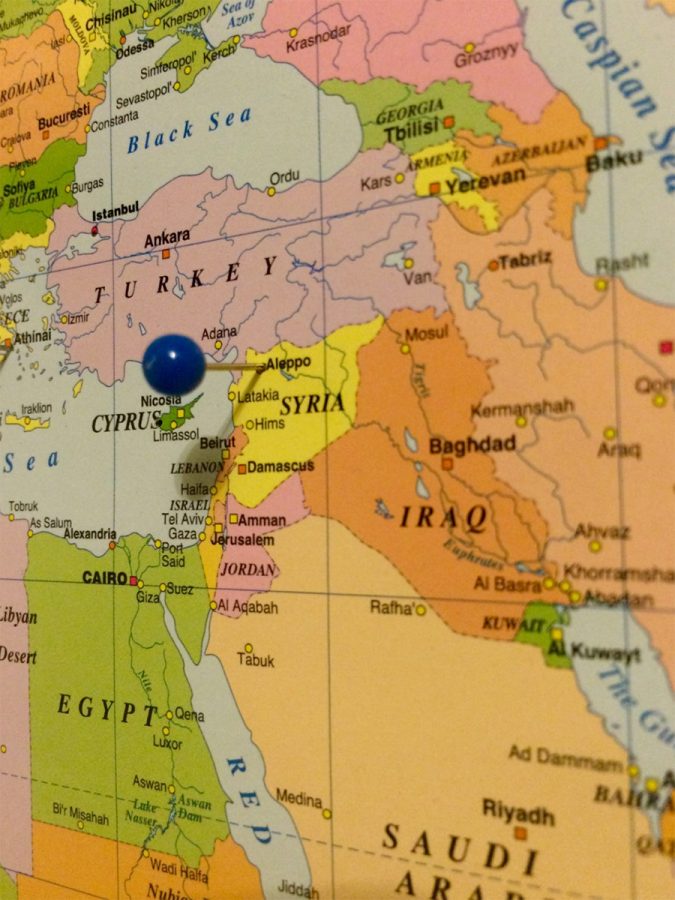Gary Johnson flounders when asked about Syrian crisis
Aleppo gaffe reminds voters to pay attention
More stories from Deanna Kolell
Photo by Deanna Kolell
Aleppo, Syria has been “the epicenter of the refugee crisis,” according to Mike Barnicle.
This past Thursday, the Libertarian Party presidential nominee Gary Johnson appeared on MSNBC’s “Morning Joe” show. While being interviewed by co-host Mike Barnicle, Johnson was asked how he would handle the crisis in Aleppo, Syria. His response?
“And what is Aleppo?”
Hardly a question a presidential nominee should ask.
Johnson’s lapse in memory ignited a firestorm of criticism across the political spectrum. As the third party candidate most likely to make it to the debate stage, Johnson’s blunder is particularly demoralizing to voters who are faced with the unhappy prospect of choosing the lesser of two evils: Donald Trump or Hillary Clinton.
In a subsequent interview with CNN’s Wolf Blitzer, Johnson remarked on his Aleppo gaffe.
“I take complete responsibility,” Johnson said. “I’m running for the president of the United States. Look, I should have known what he [Barnicle] was talking about.” Johnson later stated that he initially thought Aleppo was an acronym.
Although such a misunderstanding should have never taken place, Johnson’s mistake begs the question: how many of us recognize the significance of Aleppo? How many of us could even identify Aleppo on a map?
According to PolitiFact, Aleppo was a relatively peaceful city in Syria until 2012 when rebel units attempted to take control from the regime of President Bashar al-Assad. Since then, the battle for Syria’s largest city has not stopped. Violence has increased between the rebels and the government over the past months, causing thousands of refugees to flee the country.
So, how will this affect Johnson’s campaign? Johnson’s inability to identify the largest city in Syria may cause undecided voters to become skeptical of his qualifications to be commander-in-chief.
However, Johnson also brings something to the table that other candidates seem to lack: humanity. Unsurprisingly, he has spent the past few days apologizing for his flub.
“I blanked,” Johnson said in a response to Bloomberg Politics. “It happens, and it will happen again.”
Johnson has proven his humanity before, stating his “head’s been in the sand” concerning racial discrimination and the Black Lives Matter movement. Few presidential candidates would be willing to admit their shortcomings, but Johnson did not hesitate to do so.
Nevertheless, humanity is not a quality that will win an election against big names — and even bigger personalities — like Clinton or Trump. Johnson is polling around 9 percent according to RealClearPolitics, still quite far from the 15 percent polling threshold needed to make it to the debate stage. While his Aleppo gaffe probably won’t deter Johnson supporters from voting for him, it will make undecided voters think twice before checking his name on the ballot.
Should Johnson have been able to identify Aleppo? Definitely. However, the implications of Johnson’s Aleppo gaffe extend beyond his campaign. Even Barnicle said he was not surprised that Johnson was unable to immediately name Aleppo’s significance. In his opinion, Americans’ physical and emotional distance from such world crises do not allow us to empathize with the victims for long, including the people of Aleppo.
Barnicle has a point. It’s easy to forget about world crises that are not imminently dangerous to our day-to-day lives. We may sympathize with the Syrian refugees for a moment and then we go back to scrolling through Facebook or simply living our lives.
None of the 2016 presidential candidates are perfect by any means. Trump and Clinton have been plagued by numerous scandals and infamous tweets, but in an election where candidate dissatisfaction is at an all-time high, our vigilance is vital. It’s likely that if Johnson needs a refresher on current events, so do we. We will only be able to make an informed decision by having all the facts.
UW-Eau Claire junior Jeremiah Webster agrees, citing a need for people to expand their media literacy.
“There’s kind of been this war on the media ever since this election started,” Webster said. “The news gets spun so many different ways by so many different people trying to advance their agendas.”
With multiple media platforms peddling their separate political agendas, it is challenging to unearth the truth, but we, as voters, must try.
The question Johnson asks in his advertisements is one we need to ask ourselves: “Are you paying attention?”

